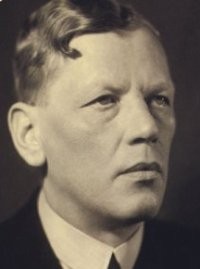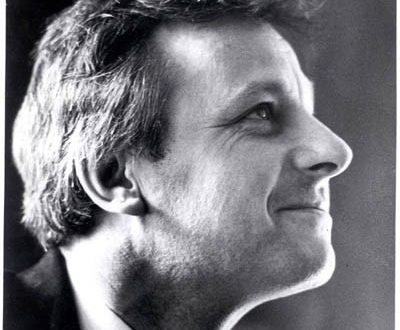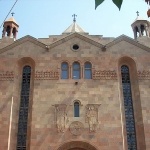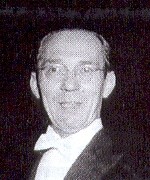
Hans Knappertsbusch |
Hans Knappertbusch

Music lovers, fellow musicians in Germany and other countries simply called him “Kna” for short. But behind this familiar nickname was a great respect for the remarkable artist, one of the last Mohicans of the old German conductor school. Hans Knappertsbusch was a musician-philosopher and at the same time a romantic musician – “the last romantic at the podium”, as Ernst Krause called him. Each of his performances became a real musical event: it opened up new horizons for listeners in sometimes well-known compositions.
When the impressive figure of this artist appeared on the stage, some special tension arose in the hall, which did not leave the orchestra and listeners to the end. It seemed that everything he did was extraordinarily simple, sometimes too simple. Knappertsbusch’s movements were unusually calm, devoid of any affectation. Often, at the most crucial moments, he completely stopped conducting, lowered his hands, as if trying not to disturb the flow of musical thought with his gestures. The impression was created that the orchestra was playing by itself, but it was only apparent independence: the strength of the conductor’s talent and his masterful calculation owned the musicians who were left alone with the music. And only at rare moments of climaxes did Knappertsbusch suddenly throw his giant arms up and to the sides – and this explosion made a huge impression on the audience.
Beethoven, Brahms, Bruckner and Wagner are the composers in whose interpretation Knappertsbusch reached his heights. At the same time, his interpretation of the works of great composers often caused heated debate, and seemed to many to be a departure from tradition. But for the Knappertsbusch there were no laws other than the music itself. In any case, today his recordings of the symphonies of Beethoven, Brahms and Bruckner, Wagner’s operas, and many other works have become an example of a modern reading of the classics.
For more than half a century, Knappertsbusch has occupied one of the leading places in the musical life of Europe. In his youth, he dreamed of becoming a philosopher, and only by the age of twenty did he finally give preference to music. Since 1910, Knappertsbusch has been working in opera houses in different German cities – Elberfeld, Leipzig, Dessau, and in 1922 he became the successor to B. Walter, heading the Munich Opera. Then he was already well known throughout the country, although he was the youngest “General Music Director” in the history of Germany.
At that time, the fame of Knappertsbush spread throughout Europe. And one of the first countries to enthusiastically applaud his art was the Soviet Union. Knappertsbusch visited the USSR three times, leaving an indelible impression with his interpretation of German music and “finally winning the hearts of the listeners” (as one of the reviewers wrote at the time) with his performance of Tchaikovsky’s Fifth Symphony. Here is how the Life of Art magazine responded to one of his concerts: “A very peculiar, unusual, extremely flexible and subtle language of sometimes barely perceptible, but expressive movements of the face, head, entire body, fingers. Knappertsbusch burns during performance with deep inner experiences that materialize in his entire figure, inevitably pass on to the orchestra and infect him irresistibly. In Knappertsbusch, skill is combined with a huge strong-willed and emotional temperament. This puts him in the ranks of the most outstanding contemporary conductors.”
After the Nazis came to power in Germany, Knappertsbusch was removed from his post in Munich. The honesty and uncompromisingness of the artist were not to the liking of the Nazis. He moved to Vienna, where until the end of the war he conducted performances of the State Opera. After the war, the artist performed less frequently than before, but each concert or opera performance under his direction brought a real triumph. Since 1951, he has been a regular participant in the Bayreuth Festivals, where he conducted Der Ring des Nibelungen, Parsifal, and the Nuremberg Mastersingers. After the restoration of the German State Opera in Berlin, in 1955 Knappertsbusch came to the GDR to conduct Der Ring des Nibelungen. And everywhere the musicians and the public treated the wonderful artist with admiration and deep respect.
L. Grigoriev, J. Platek





